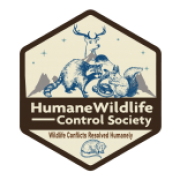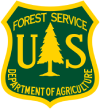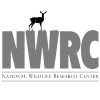Humane Wildlife Control in Milwaukee, WI
The Humane Wildlife Control Society recommends non-invasive solutions to resolve human-wildlife conflicts. This includes:
Determining if the issue needs to be addressed at all
Opting for preventative measures first
Opting for wildlife exclusion as opposed to trapping
If trapping is the only way to solve the problem do so humanely
The Humane Wildlife Control Society screens candidates prior to recommendation. Our process requires any company we recommend to meet the following criteria:
Is properly licensed in Wisconsin for wildlife control
Carries appropriate business licenses and insurance
Complies with all Wisconsin laws and regulations for wildlife control
Adheres to the humane principles listed above.
In Milwaukee, Wisconsin we recommend Humane Wildlife Removal Milwaukee for professional wildlife control services. This is a private company that charges for their services.
Contact Information:
Pest Animal Removal Milwaukee
414-375-2446
If you have any wildlife issues that can be handled by the state government agency for free, the Wisconsin Wildlife Commission can help.
State Contact Information: 608-267-0866
The State Department of Agriculture may also be able to address your wildlife problem for no charge.
USDA Contact Information: (608) 224-5100
Milwaukee Urban Wildlife Directive Core Control Mandate Fortified Exclusion: Seal every entry point—attic vents, chimney gaps, and basement cracks—with industrial-grade steel mesh or concrete. One-way exit systems must be installed to evict animals like bats or raccoons without injury, ensuring no re-entry. Half-measures will not suffice. Strategic Objectives
City Strategies for Disciplined and Humane Control
Milwaukee, Wisconsin, a formidable industrial and cultural hub on Lake Michigan’s edge, balances its dense urban core and historic neighborhoods with the Milwaukee River, lakefront, and parks like Estabrook and Kletzsch. This landscape sustains wildlife—raccoons, squirrels, bats, skunks, and geese—that infiltrate homes, businesses, and public spaces, threatening safety, sanitation, and property. The City of Milwaukee enforces these wildlife control strategies to maintain order and protect our community. Compliance is not optional—it’s a civic duty mandated by municipal authority and Wisconsin law.
Milwaukee rejects cruel and reckless tactics like poisons or lethal traps. These violate city ordinances, Wisconsin Department of Natural Resources (DNR) regulations, and public health standards, risking disease spread and ecological harm. Our directive demands humane, disciplined strategies:
Regulated Live Capture: Deploy live traps—secure, humane cages—operated solely by DNR-licensed professionals to capture wildlife, followed by relocation to designated habitats outside urban zones. This is tightly controlled to prevent ecosystem disruption and ensure animal welfare.
Urban Sanitation: Eliminate attractants decisively—lock trash bins, remove pet food, and clear debris or overgrown weeds. Milwaukee’s sanitation codes require this to curb wildlife incursions at their source.
Milwaukee’s Distinct Challenges
Our city’s harsh winters, averaging 40+ inches of snow (NOAA data), force wildlife into homes and warehouses for warmth, peaking in December through February per DNR reports. Spring thaws and lake breezes spark breeding surges in areas like Bay View or the Third Ward, while industrial zones near the Menomonee Valley harbor skunks and rodents. Milwaukee’s aging brick homes and factory relics offer easy access points. These strategies confront these realities head-on, safeguarding our urban fabric and public well-being.
Public Safety: Prevent hazards from wildlife conflicts or toxic residues in dense neighborhoods.
Legal Order: Enforce Milwaukee Code Chapter 78 and Wisconsin Statute 29, ensuring lawful conduct.
City Resilience: Protect infrastructure and maintain ecological stability in our Great Lakes hub.
Mandatory Community Action
Immediate Response: Report wildlife intrusions—gnawing, droppings, or sightings—to city authorities or licensed operators without delay. Hesitation escalates risks.
Professional Reliance: Engage only DNR-certified experts for trapping or exclusion—unregulated efforts are illegal and ineffective.
Property Discipline: Maintain buildings and yards year-round to block wildlife access, per city standards.
Enforcement Protocol
Violations—using banned methods or neglecting control duties—breach municipal law and face penalties: fines up to $500, mandatory remediation, or legal action. The Milwaukee Health Department and Animal Control Division, in coordination with the DNR, oversee enforcement through inspections and rapid response. Non-compliance undermines our city’s integrity and will be addressed firmly.







